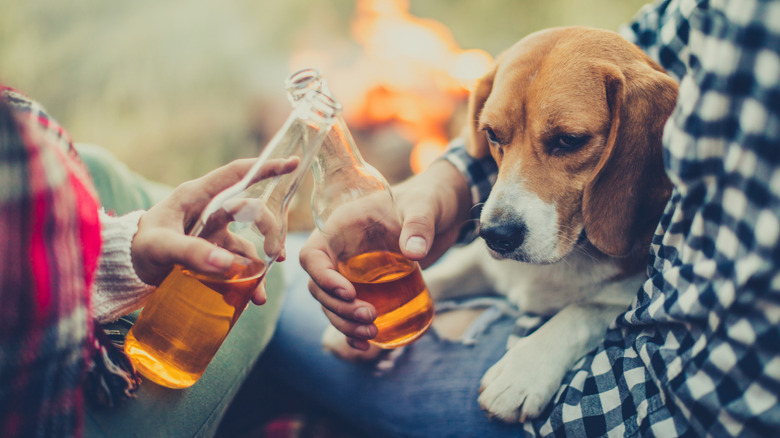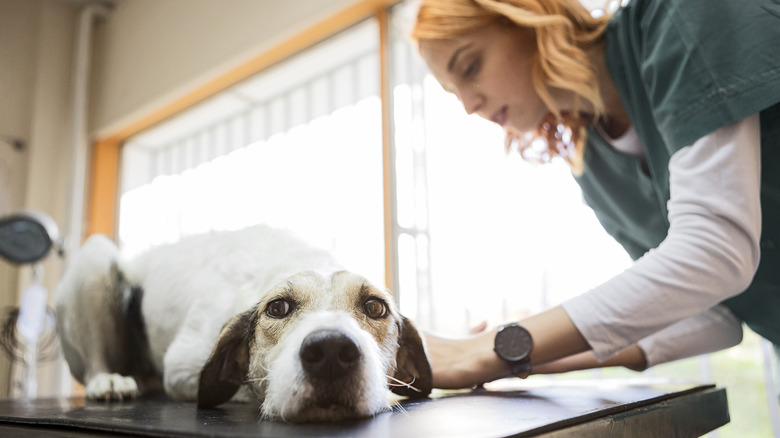Here's What Really Happens If A Dog Drinks Alcohol
Dozens of food and beverage items can be harmful to dogs, including chocolate, coffee, and onions. Alcohol also makes the list of foods and drinks that are dangerous to dogs. Although many people can enjoy a small glass of wine for dinner without any negative side effects, that's not the case for dogs; even a small amount of alcohol could be detrimental to them. If a dog were to drink alcohol, it could become poisoned and end up in a veterinary emergency room, or worse.
Why is alcohol so much more dangerous to dogs than humans? Because they metabolize it slower and have smaller average body sizes. The higher the alcohol percentage, the more dangerous it is for one. The alcohol by volume percentage in a standard alcoholic beverage ranges from approximately 4% in beer to about 40% in vodka. This would mean that a tablespoon of Smirnoff would be more harmful than a tablespoon of Miller Lite for a dog.
Unlike other beverages, the smell of alcohol doesn't typically appeal to dogs, but if it's mixed with a beverage that does, it might. You might find your pup curiously sloshing its tongue in a beer cocktail it sees left in a camping chair, or sampling the champagne that accidentally spilled on the kitchen floor. With these possibilities in mind, always keep an eye on your dog around open alcohol, and keep the unopened bottles and cans out of its reach.
Symptoms of alcohol poisoning in dogs
A dog's reaction to accidental alcohol consumption depends not only on the amount and type consumed, but the size of the dog. Small dogs that weigh under 10 pounds typically have a higher risk of becoming poisoned than larger ones, and symptoms can manifest as little as 15 minutes after ingestion. Others could take up to an hour.
Some mild and moderate signs include vomiting, diarrhea, excessive salivation, and breathing difficulties. Dogs may also act disoriented or struggle to walk or stand up properly, similar to an intoxicated person. Severe cases of alcohol poisoning may lead to seizures, shallow breathing, or a drop in body temperature, blood pressure, or heart rate. It's also possible for a dog to slip into a coma. Some of these symptoms, such as hypothermia and respiratory failure, could be fatal.
If your dog ever accidentally drinks alcohol, contact your regular veterinarian or an emergency veterinarian as soon as possible. Make a mental note of the amount and type of alcohol it drank. The vet will likely recommend that you bring your dog in to examine, treat, and monitor it. The sooner it receives treatment for alcohol ingestion, the greater the chances of recovery.
If you believe your pet has consumed a toxic substance and you can't reach your veterinarian or an emergency clinic, please contact the ASPCA 24/7 Poison Control Hotline at 888-426-4435 or the Pet Poison Helpline at 855-764-7661.

